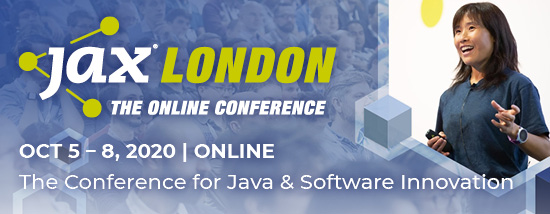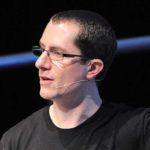The fast way to describe Call for Code is a hackathon. But it’s so much more than that. Call for Code is a movement where people come together to take on some of the world’s greatest challenges. Launched in 2018, contributors from around the world have created more than 15,000 apps for humanitarian issues and over 400,000 developers, data scientists, and problem solvers have created a unique “tech for good” community.
Built on open source principles, the Call for Code Global Challenge asks developers and problem solvers to form teams and develop solutions that address specific problems in unique, clearly demonstrable ways. The most successful solutions are those deemed to have the greatest community impact with the smallest technological footprint.
Examples of projects submitted include Safe Queue: an app for COVID-19 times that replaces the physical queues with a virtual queue you join from your phone, allowing you to queue the comfort and safety of your car or other safe place nearby ; an earthquake early-warning system from Grillo; and Liquid Prep, a solution for farmers who want to optimize their water usage, specially designed for low-literate farmers in developing countries.
SEE ALSO: 4 reasons to invest in knowledge sharing and documentation
Previous Call for Code winners include Agrolly, the creators of an app that helps small farmers threatened by climate change decide what to plant and when; and Project OWL, an IoT and software solution that keeps first responders and victims connected in a natural disaster. In 2019, I was proud that a European entry took the global prize – Prometeo uses IoT devices to track exposure and pull firefighters from the field before their health is compromised. In 2020, we were delighted to hold the first European Call for Code challenge. The winner was The Hero Loop, an app that connects volunteers around the world with local people in need.
Anyone can enter Call for Code. To get started you don’t even have to have a ready-made team. Bente Acking, Founder of The Hero Loop, had an idea but she didn’t have the resources or expertise to build it by herself. She joined the Call for Code community on Slack and found her teams members there. Bente’s conclusion: “if you have an idea, don’t let anything stop you!’ And indeed, anyone with an idea that fits the competition theme can join the community and work with others to build a team, submit an entry, and continue developing the project.
While coding projects are usually just for developers, Call for Code is best served by a diverse team. The Prometeo winning team had a firefighter, a nurse, a project manager, a data scientist, and a full stack developer. The team won on their second try – project leader Salomé Valero said that for their first attempt, they focused all their energy on the development – at the expense of the user experience and of advocating their project. Bringing in a broader skillset on their second attempt made the project much stronger.
The true power of Call for Code is in the ecosystem. According to Prometeo’s Salomé Valero: “we would never had made it this far without the ecosystem. There’s a global village involved in our journey.” Solving big problems – whether they’re business challenges or global issues like climate change – requires large ecosystems of partners focused on the same goal. The Call for Code ecosystem brings on board experts, companies, foundations, universities, and celebrities who all pitch in offering resources, expertise, guidance, promotion. These include the UN World Food Programme Innovation Accelerator experts, Arrow Electronics, Black Girls Code, Caribbean Girls Hack, Clinton Foundation, Clinton Global Initiative University, Ingram Micro, Intuit, Kode With Klossy, NearForm, United Nations Office for Disaster Risk Reduction, United Way, and the World Institute on Disability.
This allows developers to work with a huge pool of experts – that’s incredibly important to help their projects and teams grow successfully and to build software that people can really use.
There is also a wonderful community spirit between the different Call for Code projects. Developers chat, ask questions, and exchange ideas on the Call for Code Slack channel. The slack channel is a communications hub, a learning pool, and the birthplace of collaboration. For example, New-York based 2018 winnerProject OWL stepped up and 3D printed essential devices that Prometeo for firefighters.
IBM makes resources available to developers such as software and datasets – these are valuable in developing and testing the project idea. Even more valuable is IBM’s role as a connector, advisor and mentor. We join the dots, helping to bring the right people with the right skills together and guide them towards the right resources. I am particularly proud that of the recently launched mentoring programme that originated in Europe. Because it can be a challenge for teams to work together especially when remote, IBM colleagues help teams to work together during the development process. We check in on the teams regularly to see how they’re doing and provide any help they need.
Call for Code Global winners get a bespoke IBM team, the IBM Service Corps, who get on board to help. The multiskilled team of carefully selected IBM volunteers join the project team on-the-ground for several weeks. Feedback from winners is unwaveringly excellent. Salomé from Prometeo says “we learned so much from them, particularly around IoT, software and AI. The skills of the team were perfectly suited to what we needed.”
SEE ALSO: “Akka Serverless is really the first of its kind”
Winning Call for Code is a springboard. The prize money is a huge help but winning the competition also means raising the profile of the project towards potential partners, donors and markets and investors. The Hero Loop has upcoming pilots scheduled in three continents: Nairobi, Kenya; Helsingborg, Sweden and New York, USA. Discussions are underway for a light version to be tested in India in light of the national Covid-19 crisis.
However, Call for Code about much more than winning. It’s heartening to see so many teams continue to work within the community, further developing their project, strengthening and making new connections and helping others – all with the aim of improving life and livelihoods for people across the world.
The 2021 Call for Code global challenge is looking for projects to help combat climate change. Submit your entry by July 31st. Read more here.
The post Call for Code – a hackathon unlike any other appeared first on JAXenter.
Source : JAXenter





















